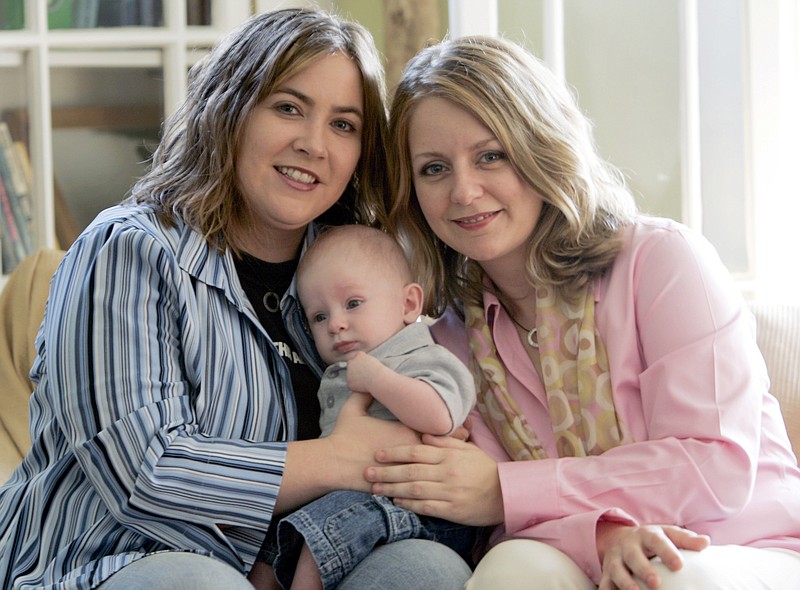MONTGOMERY, Ala. (AP) - The association representing Alabama's probate judges said it's possible some of its members would issue marriage licenses to same-sex couples when courthouses across the state open Monday, despite the group's advice against that.
U.S. District Judge Callie V.S. Granade ruled in favor of a same-sex couple on Friday, declaring Alabama's statutory and constitutional gay marriage bans in violation of the U.S. Constitution.
That ruling was the latest in a string of victories around the Deep South for marriage rights advocates after judges struck down bans in Mississippi, Arkansas, the Carolinas and Florida. The judge's order reverberated throughout a state considered one of the Bible Belt's most socially conservative.
Judge Greg Norris, president of the Alabama Probate Judges Association, said in a telephone news conference Sunday that it will be up to each probate judge to decide whether to grant licenses to same-sex couples. Norris said the group is advising Alabama's nearly 70 probate judges not to do so, based on advice from its lawyer.
The association maintains that Friday's ruling applies only to the parties in that case, and that it doesn't require judges to issue marriage licenses to other same-sex couples. Norris said probate judges have a duty to issue licenses in accordance with Alabama law, which means they can't issue them to same-sex couples.
The association's lawyer, Al Agricola, said it's unclear whether any probate judges will go against the group's advice.
"We really don't know at this time whether any probate judges in Alabama will or will not issue marriage licenses to same-sex couples on Monday morning," Agricola said. The association's advice is non-binding, its leaders said during Sunday's conference call.
David Kennedy, a lawyer in the case that overturned the ban, disagreed with the association's interpretation. He said judges need to "embrace reality" that the law has been overturned.
Kennedy said he hoped the probate judges will "not embarrass our great state by standing in the probate courthouse door" in a manner reminiscent of George Wallace defying a federal order directing integration of the University of Alabama decades ago.
Carl Tobias, a professor at the University of Richmond School of Law, said the probate judges' association is making arguments similar to the clerks in Florida which were eventually rejected by a district judge rejected. Yet he acknowledged there could be some particulars in the law that make Alabama's ruling different.
"The Alabama ruling is not limited to the adoption case and broadly says the Alabama laws are unconstitutional," Tobias said.
Granade's decision came after Cari Searcy and Kim McKeand challenged the ban that prohibited Alabama from recognizing their California marriage and Searcy's as a legal parent to their son. McKeand gave birth to the boy in 2005, but a court repeatedly rejected Searcy's petitions to adopt since the couple was unmarried under Alabama law.
Granade also enjoined Alabama Attorney General Luther Strange from enforcing the bans.
Strange's office has asked the judge to put a hold on her order until the U.S. Supreme Court takes up the issue of gay marriage in a few months.
Lawyers for the state of Alabama argued there would be no harm in waiting for the Supreme Court to take up the issue on a nationwide basis.
Lawyers for Searcy and McKeand on Sunday asked the judge to let her order stand. They said a waiting would harm not just the Mobile plaintiffs, but other gay couples across Alabama.
"Plaintiffs and other same-sex couples are subjected to irreparable harm every day they are forced to live without the security that marriage provides. As they wait, children will be born, partners and spouses will get sick, and some will die," Kennedy wrote.
